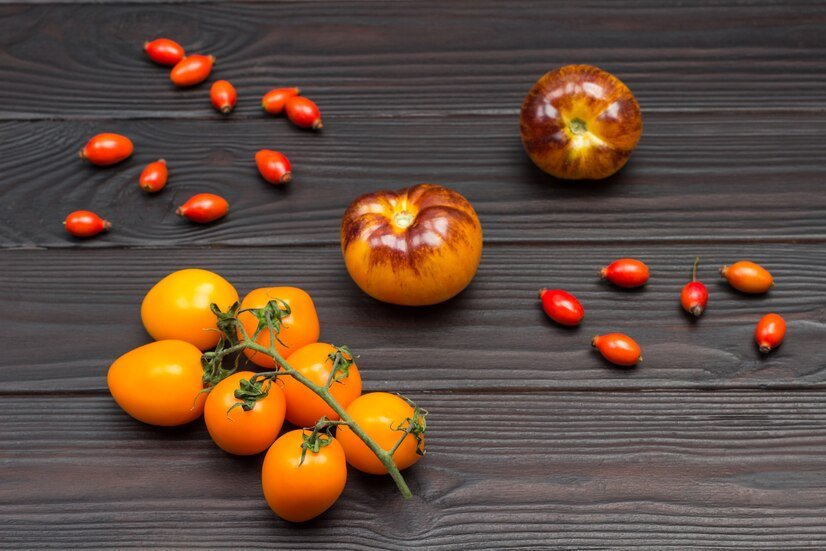FOOD
Persimmons: The Versatile Fruit Worth Exploring
Persimmons, often referred to as the “food of the gods,” are a delightful fruit celebrated for their unique flavor

Persimmons, often referred to as the “food of the gods,” are a delightful fruit celebrated for their unique flavor, vibrant color, and numerous health benefits. From their rich cultural history to their versatility in culinary applications, persimmons are indeed a fruit worth exploring.
Originating from East Asia, persimmons belong to the genus Diospyros and are cultivated in various parts of the world today. These fruits come in different shapes, sizes, and flavors, with each variety offering its own distinct characteristics.
Different Varieties of Persimmons
Fuyu Persimmons
Fuyu persimmons are squat and round, resembling a tomato. They have a crisp texture and can be eaten when still firm or allowed to ripen to a softer consistency. Fuyu persimmons are sweet with a hint of spice, making them perfect for fresh consumption or as an addition to salads.
Hachiya Persimmons
Hachiya persimmons are larger and elongated, with a pointed bottom. They are known for their astringent taste when unripe, but once fully ripe, they become soft and sweet. Hachiya persimmons are often used in baking, where their pulp lends moisture and sweetness to cakes, bread, and puddings.
Nutritional Benefits of Persimmons
Persimmons are packed with essential nutrients, including vitamins A, C, and E, as well as potassium, manganese, and dietary fiber. These nutrients play vital roles in supporting overall health and well-being.
Health Benefits
Rich Source of Vitamins and Minerals
Persimmons are a powerhouse of vitamins and minerals that contribute to maintaining healthy skin, boosting immune function, and supporting proper cellular function.
Boosting Immune System
The high vitamin C content in persimmons strengthens the immune system, helping the body fight off infections and illnesses.
Promoting Heart Health
Potassium in persimmons helps regulate blood pressure levels, reducing the risk of cardiovascular diseases such as heart attack and stroke.
Ways to Incorporate Persimmons into Your Diet
Persimmons can be enjoyed in various ways, adding a burst of flavor and nutrition to your meals and snacks.
Fresh Consumption
Slice persimmons and enjoy them fresh as a healthy snack or appetizer.
Cooking and Baking
Use ripe persimmons in baking recipes like cakes, muffins, and bread for added sweetness and moisture.
Smoothies and Juices
Blend persimmons into smoothies or juices for a refreshing and nutritious beverage option.
Seasonality and Availability
Persimmons are typically in season during the fall and winter months, with peak availability from late September to December. However, some varieties may be available year-round in certain regions.
Cultural Significance of Persimmons
Persimmons hold cultural significance in many countries, symbolizing good fortune, prosperity, and abundance. They are often included in traditional ceremonies and celebrations.
Growing and Harvesting Persimmons
Persimmon trees thrive in temperate climates and require well-drained soil and ample sunlight to flourish. The fruits are harvested when fully ripe and have developed their characteristic color and flavor.
Storing Persimmons
Store unripe persimmons at room temperature until they ripen, then refrigerate them to extend their shelf life. Ripe persimmons can be kept in the refrigerator for up to a week.
Common Culinary Uses
Persimmons can be used in a variety of dishes, including salads, desserts, jams, and chutneys. Their sweet and tangy flavor adds depth to both sweet and savory recipes.
Persimmons in Traditional Medicine
In traditional medicine systems like Traditional Chinese Medicine (TCM), persimmons are believed to have cooling properties and are used to treat conditions such as diarrhea, coughs, and inflammation.
Recipes Featuring Persimmons
Explore the versatility of persimmons with these delicious recipes:
- Persimmon Salad with Arugula and Goat Cheese
- Persimmon Bread Pudding with Caramel Sauce
- Persimmon Smoothie Bowl with Granola and Fresh Fruit
Tips for Choosing Ripe Persimmons
When selecting persimmons, look for fruits that are plump, glossy, and free from blemishes. Ripe persimmons should yield slightly to gentle pressure and have a sweet aroma.
Potential Side Effects and Precautions

While persimmons are generally safe to consume, some individuals may experience allergic reactions or digestive discomfort. It’s essential to consume them in moderation and consult a healthcare professional if you have any concerns.
Conclusion
persimmons are a versatile fruit with a rich history and numerous health benefits. Whether enjoyed fresh, baked into desserts, or blended into smoothies, persimmons add a burst of flavor and nutrition to any dish. So why not explore the world of persimmons and discover the endless possibilities they offer?
FAQs (Frequently Asked Questions)
Are persimmons high in sugar?
While persimmons contain natural sugars, they are also rich in fiber, which helps regulate blood sugar levels.
Can you eat persimmons with the skin?
Yes, you can eat certain varieties of persimmons with the skin, but it’s best to wash them thoroughly first.
How do you ripen persimmons quickly?
To ripen persimmons faster, place them in a paper bag with a ripe banana or apple. The ethylene gas emitted by the fruits will speed up the ripening process.
Are there any varieties of persimmons that are non-astringent?
Yes, Fuyu persimmons are non-astringent and can be eaten when still firm.
Can persimmons help with digestion?
Yes, persimmons are rich in dietary fiber, which aids in digestion and promotes regular bowel movements.
Table of Contents
-

 Tech1 year ago
Tech1 year agoHow to Use a Temporary Number for WhatsApp
-

 Business2 years ago
Business2 years agoSepatuindonesia.com | Best Online Store in Indonesia
-

 Social Media2 years ago
Social Media2 years agoThe Best Methods to Download TikTok Videos Using SnapTik
-

 Technology2 years ago
Technology2 years agoTop High Paying Affiliate Programs
-

 Tech12 months ago
Tech12 months agoUnderstanding thejavasea.me Leaks Aio-TLP: A Comprehensive Guide
-

 FOOD1 year ago
FOOD1 year agoHow to Identify Pure Desi Ghee? Ultimate Guidelines for Purchasing Authentic Ghee Online
-

 Instagram3 years ago
Instagram3 years agoFree Instagram Auto Follower Without Login
-

 Instagram3 years ago
Instagram3 years agoFree Instagram Follower Without Login





















